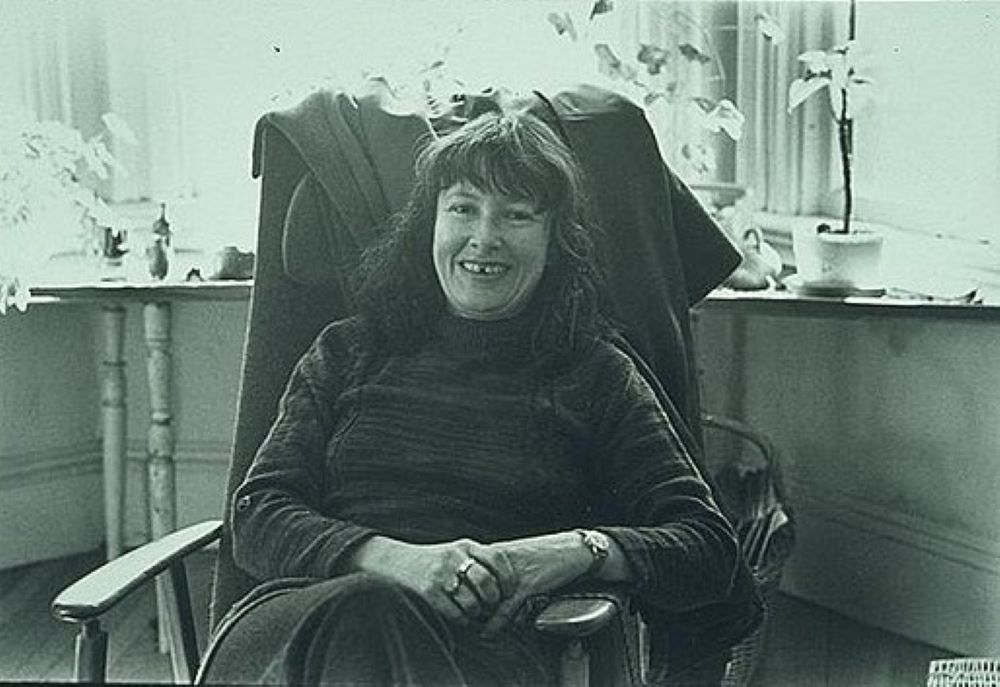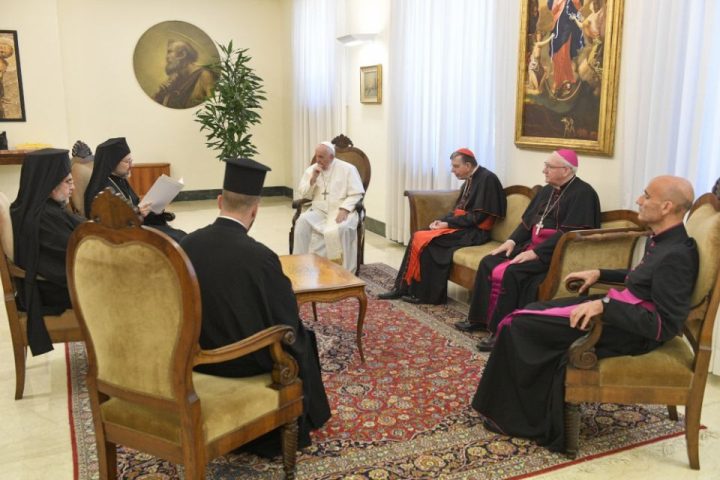
William Butler Yeats posed this dilemma: One must choose the perfection of life or that of the work. Denise Levertov offers a refutation of that choice.
As one the most important poets in the second half of the 20th century, Levertov was deeply engaged in social justice matters. The only moniker she allowed was, « Poet in the World. »
She was born 100 years ago on Oct. 24, 1923, in Ilford, England. In the last years of her life, this avowed agnostic turned to faith, and in the process produced a luminous collection of poetry and prose. She acknowledged that it was in writing poetry she came to faith; her work « enfaithed » her.
She was the daughter of « Celt and Jew. » Her mother descended from Welsh poets; her father a Hasidic Jew, scholar of mysticism and a convert to Anglican Christianity. With no formal schooling and educated by her mother until 12, she furthered her education through the BBC, the museums of London and tramps through the English countryside. The family had socialist leanings, welcoming refugees into their home, and Denise often hawked The Daily Worker. During World War II she worked in a London hospital and after the war traveled through Europe, married American GI Mitchell Goodman, came to the U.S. and had a son. The couple divorced in 1975.
During the Vietnam War she was arrested at protests and wrote many poems about the war. In 1970 she went to Moscow and in 1972 to Hanoi. She participated in protest readings and helped organize actions for artists and writers. She would go on to later protest against nuclear war, U.S. foreign policy in Latin America and destruction of the environment. Burnt out, she wrote:
« Joy / is real, torture is real, we strain to hold/ a bridge between them, / and fail, / or all but fail. » She taught at several universities: Berkeley, Tufts and finally at Stanford the last years of her life.
In 1946 she published her first poetry collection, The Double Image, and by the end of her life she had published 29 books of poetry and prose. As a poet she was influenced by William Carlos Williams, who taught « a Franciscan sense of wonder that illuminates what is accounted ordinary, » Black Mountain poets and Rainer Maria Rilke, who taught her to focus on the word.
Levertov wrote that Rilke’s style is « reverent, passionate, and comprehensive. » His reverence led him to concrete and sensuous images; his passion brought him to internalize and experience; and his comprehensiveness helped him bridge the gap between art and life. Rilke was the most profound influence on her poetic life.
As a child Levertov learned her parents’ reverence for life and attention to life, which became the basis for her craft as a poet. She wrote,
The progression seems clear to me: from Reverence for Life to Attention to Life, from Attention to Life to a highly developed Seeing and Hearing, from Seeing and Hearing (faculties almost indistinguishable for the poet) to the Discovery and Revelation of Form.
Although she was bored by religion, an agnostic, her parents did not transmit any sense of religion. Ultimately, it was poetry that led Levertov to religion. Later, she began by writing an agnostic mass, « Mass for the Day of St. Thomas Didymus. » But as she worked on the poem, she arrived at a different place.
« When I had arrived at the Agnus Dei, I discovered myself to be in a different relationship to the material and the liturgical form from that which I had begun, » Levertov writes. « The experience of writing the poem — the long swim through waters of unknown depth — had been also a conversion process … »
She subsequently writes of « freefall into Creator Spirit’s deep embrace, knowing no effort earns/that all-surrounding grace. » In 1984 she wrote an oratorio for the death of Oscar Romero and American churchwomen killed in El Salvador. By the late 1980s she admitted much of her poetry was religious, and she converted to Catholicism.
Although she explored many Christian traditions, Levertov was drawn to the liturgy and commitment to social justice found in the Catholic Church. She resonated with the writing and persons of Dorothy Day, Daniel Berrigan, Thomas Merton, Franciscan poet Murray Bodo and David Steindi-Rast. She entered the Catholic Church. In « Flicking Mind » she writes: « Lord, not you, / it is I who am absent. » Her coming to God was gradual and experiential, not credal, much like Thomas Didymus.
In the late 1980s Levertov moved to Seattle. There her images of God include morning mist, the tower Mt. Rainer, joy, a flood of mercy and silence. In her last poem, « Primary Wonder, » she writes,
And then
once more the quiet mystery
is present to me, the throng’s clamor/ recedes: the mystery that that there is anything, anything at all
let alone cosmos, joy, memory, everything,
rather than void: And that, O Lord,/Creator, Hallowed One, You still,
hour by hour by hour sustain it.
Denise Levertov was both prophet and poet. She lived with the door of her life opened to the transcendence, the numinous. She lived as a pilgrim weaving together life and work. In 1997 she died of lymphoma; she was 74.



